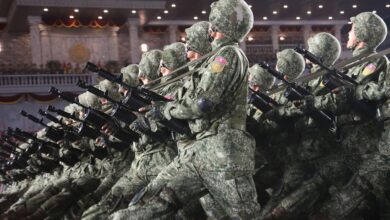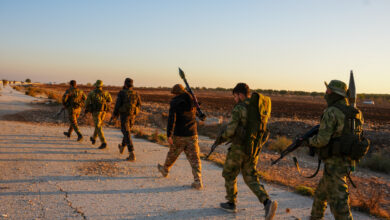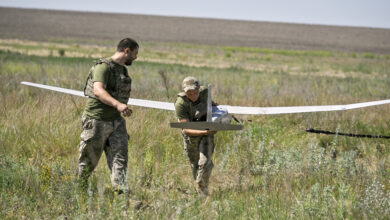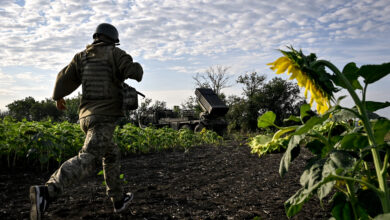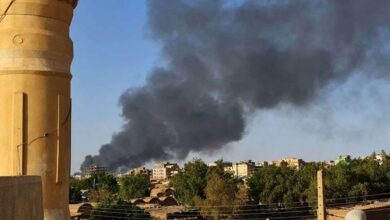Swedish Intelligence Says ‘Security’ Threat Worst Since 1980s
Sweden’s military intelligence said Monday the security threat to the Nordic nations and Europe was “the most serious” it has been since the Cold War, after Russia’s invasion of Ukraine.
“The risks to Swedish security have increased and the threats to Sweden have become broader and more complex,” the Swedish Armed Forces said in a statement.
The assessment was presented as part of the Swedish Military Intelligence and Security Service (MUST) annual analysis of the situation.
“Today we have an ongoing state of conflict and confrontation between Russia and the West, which risks worsening further,” Lena Hallin, head of MUST, said in a foreword to the report.
Hallin said the security situation in Europe and in Sweden’s immediate area was “the most serious since at least the beginning of the 1980s.”
Sweden, along with neighboring Finland, dropped decades of military non-alignment and applied to join NATO last May in response to Moscow’s invasion of Ukraine.
However, Sweden’s application especially has faced opposition from Turkey, which is holding off on ratifying its membership.
New NATO members need to be ratified by all 30 current members to be able to enter the alliance.
Turkey has accused Sweden of providing a safe haven for what it considers “terrorists,” especially members of the Kurdistan Workers’ Party (PKK).
In recent weeks, relations have been strained even further as a result of anti-Turkey protests in Sweden. These include the hanging of an effigy portraying Turkish President Recep Tayyip Erdogan and the burning of a Koran in front of Turkey’s embassy in Stockholm.
In MUST’s assessment, Sweden was still “safer after the NATO application had been filed,” arguing that the Nordic country had received bilateral security assurances from several countries while the membership was still pending.
At the same time, MUST believes the “intelligence threat” against Sweden will increase.
“That is in part a result of Russian intelligence gathering about Sweden’s future role within NATO, but also by Russian attempts to circumvent the sanctions against the country,” Hallin said.
This “intelligence threat” consists of both intelligence gathering by individuals and cyber or other technical attacks.
Hallin accused not only Russia of carrying out operations against Sweden, but also China, estimating that both had “the ability to conduct complex operations in attempts to influence Swedish political and economical decisions.”




